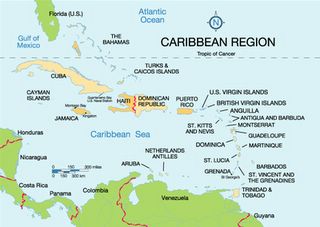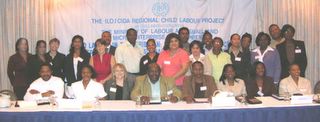Press releaseChildren out of sight, out of mind, out of reachAbused and Neglected, Millions of Children Have Become Virtually Invisible
LONDON, 14 December 2005 – Hundreds of millions of children are suffering from severe exploitation and discrimination and have become virtually invisible to the world, UNICEF said today in a major report that explores the causes of exclusion and the abuses children experience.
The agency said that millions of children disappear from view when trafficked or forced to work in domestic servitude. Other children, such as street children, live in plain sight but are excluded from fundamental services and protections. Not only do these children endure abuse, most are shut out from school, healthcare and other vital services they need to grow and thrive.
The State of the World’s Children 2006: Excluded and Invisible is a sweeping assessment of the world’s most vulnerable children, whose rights to a safe and healthy childhood are exceptionally difficult to protect. These children are growing up beyond the reach of development campaigns and are often invisible in everything from public debate and legislation, to statistics and news stories.
Without focused attention, millions of children will remain trapped and forgotten in childhoods of neglect and abuse, with devastating consequences for their long-term well-being and the development of nations. The report argues that any society with an interest in the welfare of its children and its own future must not allow this to happen.
“Meeting the Millennium Development Goals depends on reaching vulnerable children throughout the developing world,” said UNICEF Executive Director Ann M. Veneman, launching the report in London. “There cannot be lasting progress if we continue to overlook the children most in need – the poorest and most vulnerable, the exploited and the abused.”
WHY CHILDREN BECOME INVISIBLEIn the past, UNICEF has reported extensively on how poverty, HIV/AIDS and armed conflict are undermining childhood itself. Excluded and Invisible details how these factors, as well as weak governance and discrimination, deprive children of protection from abuse and exploitation, and exclude them from school, healthcare and other essential services at alarming rates.
The report finds that children who lack vital services are more vulnerable to exploitation because they have less information on how to protect themselves, and fewer economic alternatives. Children who are caught in armed conflict, for example, are routinely subjected to rape and other forms of sexual violence. It is these children – alone and defenseless – who are being ignored.
The report argues that children in four circumstances are most likely to become invisible and forgotten:
Children without a formal identity. Every year, over half of all births in the developing world (excluding China) go unregistered, denying more than 50 million children a basic birthright: recognition as a citizen. Children who are not registered at birth do not appear in official statistics and are not acknowledged as members of their society. Without a registered identity, children are not guaranteed an education, good healthcare, and other basic services that impact their childhood and future. For example, unregistered children are denied a place in school when birth certificates are required to gain access. Simply put, children who do not have a formal identity are not counted, and they are not taken into account.
Children without parental care. Millions of orphans, street children, and children in detention are growing up without the loving care and protection of their parents or a family environment. Children caught in these circumstances are often not treated as children at all.
* An estimated 143 million children in the developing world – 1 in every 13 children – have suffered the death of at least one parent. For children in deep poverty the loss of even one parent, especially a mother, can take a lasting toll on their health, and education.
* Globally, tens of millions of children spend a large portion of their lives on the streets, where they are exposed to all forms of abuse and exploitation.
* More than 1 million children live in detention, the vast majority awaiting trial for minor offenses. Many of these children suffer gross neglect, violence, and trauma.
Children in adult roles. The report argues that children who are forced into adult roles too early miss crucial stages of childhood development.
* Hundreds of thousands of children are caught up in armed conflict as combatants, messengers, porters, cooks, and sex slaves for armed groups. In many cases they have been forcibly abducted.
* In spite of laws against early marriage in many countries, over 80 million girls across the developing world will be married before they turn 18 – many far younger.
* An estimated 171 million children are working in hazardous conditions and with dangerous machinery, including in factories, mines and agriculture.
Children who are exploited. Shut away by their abusers and held back from school and essential services, children who are the victims of exploitation are arguably among the most invisible. Their lives and numbers are virtually impossible to track.
* Some 8.4 million children work in the worst forms of child labour, including prostitution and debt bondage, where children are exploited in slave-like conditions to pay off a debt.
* Nearly 2 million children are used in the commercial sex trade, where they routinely face sexual and physical violence.
* Every year, it is estimated that millions of children are trafficked into underground and illegal worlds where they are forced into dangerous and degrading forms of work, including prostitution.
* A vast but unknown number of children are exploited as domestic servants in private homes. Many are banned entirely from going to school, suffer physical abuse and are underfed or overworked.
The report also asserts that children who live in ‘fragile states’ – countries that are unable or unwilling to provide basic services for their children – are virtually invisible.
Discrimination on the basis of gender, ethnicity or disability also factors into the exclusion of children. For example, discrimination shuts millions of girls out of school and blocks critical services for children from ethnic minorities and indigenous groups. An estimated 150 million children live with disabilities globally, many without opportunities for education, healthcare, and nurturing support because of routine discrimination.
MEETING OUR COMMITMENTS TO CHILDRENThe State of the World’s Children argues that the world must go beyond current development efforts to ensure that the most vulnerable children are not left behind. Governments bear primary responsibility for reaching out to these children, and must step up their efforts in four key areas:
* Research, monitoring and reporting: Systems to record and report on the nature and extent of abuses against children are essential to reaching excluded and invisible children.
* Legislation: National laws must match international commitments to children, and legislation that fosters discrimination must be changed or abolished. Laws to prosecute those who harm children must be consistently enforced. For example, weak law enforcement perpetuates the climate of impunity that surrounds the rape of children.
* Financing and capacity-building: Child-focused budgets and the strengthening of institutions that serve children must complement laws and research.
* Programmes: Reform is urgently required in many countries and communities to remove entry barriers for children who are excluded from essential services, for example, eliminating the requirement of a birth certificate to attend school.
The report also outlines concrete actions that can be taken by civil society, the private sector, donors and the media to help prevent children from falling between the cracks. These and other efforts by people and organizations at all levels of society help to build a protective environment for children – one that protects children from abuse in the same way that immunization and adequate nutrition protect them from disease.
Governments, families and communities must do more to prevent abuse and exploitation from happening in the first place and to protect children who fall victim to abuse. Laws that hold perpetrators of crimes against children accountable must be implemented and vigorously enforced; attitudes, traditions and practices that are harmful to children must be challenged; and children themselves must get the information and life skills they need to protect themselves.
“Those who harm children rob them of opportunities to grow up safe, healthy and with dignity,” Veneman said. “To ensure that children are protected, the abuse and exploitation of children must be brought to light and those who violate children brought to justice.”
* * *
The Authority on ChildrenThe State of the World’s Children is UNICEF’s annual flagship publication. It is the most comprehensive survey of global trends affecting children and provides the most thorough almanac of up-to-date statistical data on children. SOWC is used globally by governments, NGOs, and academic institutions as the authority on childhood. Data tables from the report are fully searchable at www.unicef.org/sowc06.
This year, the launch of SOWC officially kicks off UNICEF’s 60th anniversary. UNICEF is the world’s leader for children, working on the ground in 158 countries to help children survive and thrive, from early childhood through adolescence.
Note to broadcasters: The international launch of SOWC 2006 in London will be broadcast live by APTN Direct and webcast live on www.unicef.org. B-roll is now available.
For further information and interviews please contact:Alfred Ironside, UNICEF Media, on assignment in London
(+1 917) 476-1635
Kate Donovan, UNICEF Media, on assignment in London,
(+1 917) 378-2128
Gina Dafalia, UNICEF Media, London (+ 44) 207 312 7695
Allison Hickling, UNICEF Media, New York (+1 212) 326-7224
Oliver Phillips, UNICEF Media, New York (+1 212) 326-7583
© UNICEF






















